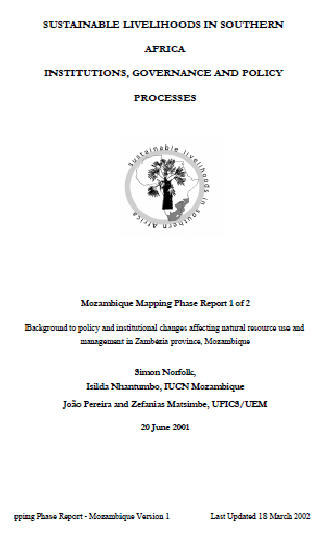Resource information
The concept of use and benefit from natural resources for local communities in Mozambique occupies a central position in the formal government vision for rural development and has been given prominence in the policies that govern access to land use rights and forest and wildlife resources. There are constitutional guarantees that recognise rights to land that have been acquired through occupation or inheritance through customary systems of allocation, and enabling legislation that permits the registration of these hitherto ‘informal’ rights. Policies relating to land and to forest and wildlife resources provide for legal mechanisms to allow rural communities to benefit from natural resource exploitation by third parties and to participate in decision-making about resource allocation and use. However, these elements of the policy framework have been consciously balanced against the need to provide access and security of tenure to private sector exploitation of the resources, in order to encourage investment and employment opportunities and to provide an engine forgrowth in the rural areas. Natural resource use policies explicitly state the need to strike a balance between these competing interests, and the relevant sector legislation contains mechanisms for realising the policy vision of ‘partnerships’ between the parties, in addition to the guarantees given to user rights. The nature of these mechanisms varies, according to the nature of the resource. Land rights


